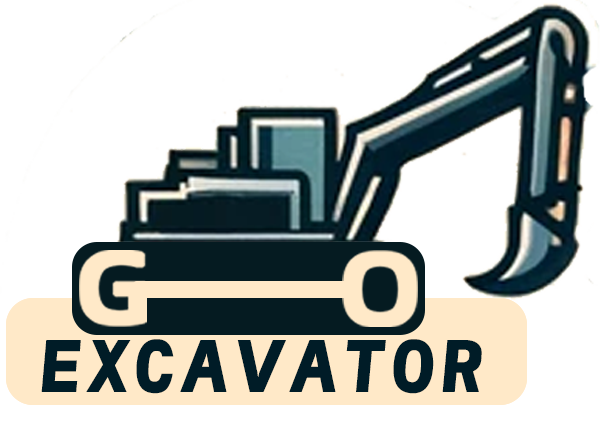
In today’s digital age, the convenience of online shopping has extended to the realm of heavy machinery, including excavators. While purchasing an excavator online offers numerous benefits, such as a wider selection and potential cost savings, it also presents unique challenges and considerations. This comprehensive guide will help you navigate the process of buying an excavator online, ensuring you make an informed decision that meets your specific needs and requirements.
Understanding Your Requirements
1. Project Scope and Workload
Before embarking on your online search, it’s crucial to assess the scope of your project and anticipated workload. Determine the size, weight, and power requirements of the excavator based on the tasks you need to accomplish. Consider factors such as digging depth, reach, and lifting capacity to ensure the machine can handle your workload efficiently.
2. Operating Conditions
Evaluate the operating conditions where the excavator will be used. Will it be working in harsh environments, such as rocky terrains or extreme temperatures? If so, you may need to prioritize features like robust undercarriages, additional cooling systems, or specialized attachments to ensure the machine’s durability and performance.
Reputable Online Marketplaces and Dealers
1. Choosing the Right Platform
When buying an excavator online, it’s essential to choose a reputable and trustworthy platform. Opt for well-established online marketplaces or authorized dealer websites that specialize in heavy machinery. These platforms often offer detailed product listings, verified seller information, and secure payment options.
2. Authorized Dealers vs. Private Sellers
Consider whether you want to purchase from an authorized dealer or a private seller. Authorized dealers typically offer warranties, maintenance support, and access to genuine parts, but their prices may be higher. Private sellers can offer lower prices but may lack the same level of support and guarantees.

Inspecting and Evaluating the Excavator
1. Detailed Product Descriptions and Specifications
Thoroughly review the product descriptions and specifications provided by the seller. Look for details such as the excavator’s make, model, year of manufacture, hours of operation, and any recent maintenance or repairs. Request additional photos or videos if necessary to assess the machine’s condition.
2. Equipment History and Documentation
If possible, request the excavator’s maintenance and service records, as well as any available documentation, such as operating manuals or inspection reports. This information can provide valuable insights into the machine’s past usage and potential issues.
3. Third-Party Inspections
Consider hiring a third-party inspection service to evaluate the excavator’s condition if you cannot inspect it in person. Professional inspectors can identify potential problems, assess the machine’s overall condition, and provide valuable advice before making a purchase.
Shipping and Delivery Considerations
1. Transportation Logistics
Excavators are large and heavy pieces of equipment, requiring specialized transportation services. Investigate the shipping options and costs provided by the seller or explore third-party logistics companies. Ensure the transportation company has experience in handling heavy machinery and can provide the necessary equipment and permits for safe and legal transport.
2. Delivery Timelines and Costs
Understand the estimated delivery timelines and associated costs. Consider factors such as the distance between the seller’s location and your job site, as well as any potential challenges or delays due to the excavator’s size and weight. Plan accordingly to avoid project delays or additional expenses.
Payment and Financing Options
1. Secure Payment Methods
When buying an excavator online, prioritize secure payment methods to protect your financial interests. Many reputable platforms offer escrow services or buyer protection programs to safeguard your transaction. Additionally, consider using credit cards or other payment methods that provide additional protection against fraud or disputes.
2. Financing and Leasing Alternatives
Explore financing or leasing options if the upfront cost of the excavator is prohibitive. Many manufacturers and dealers offer financing plans or leasing agreements that can help spread out the cost over time. Carefully review the terms and conditions to ensure the arrangement aligns with your budget and needs.
Warranties, Support, and After-Sales Service
1. Manufacturer and Dealer Warranties
Inquire about the warranties offered by the manufacturer or dealer for the excavator you’re considering. Understand the coverage, duration, and any limitations or exclusions. A comprehensive warranty can provide peace of mind and protect your investment against potential defects or malfunctions.
2. After-Sales Support and Service
Evaluate the after-sales support and service options available from the seller or manufacturer. Access to a reliable network of service centers, spare parts availability, and knowledgeable technicians can be crucial for timely maintenance and repairs, minimizing downtime and maximizing the excavator’s productivity.
Remember, investing in a high-quality excavator is a significant financial commitment, and taking the necessary precautions will help protect your investment and ensure the machine’s longevity and performance on the job site.
A Comprehensive Guide to Buying a Excavator Second Hand
Purchasing a second-hand excavator can be a cost-effective solution for your construction or landscaping needs. However, buying used machinery comes with its own set of challenges and considerations. This comprehensive guide will walk you through [...]
Comprehensive Guide to Hyundai Mini Excavators: Features and Prices
Mini excavators have become indispensable tools in the construction and landscaping industries. Hyundai Construction Equipment, a global leader in heavy machinery, offers a range of mini excavators known for their reliability, efficiency, and advanced features. [...]
How to Extend the Service Life of Excavator Parts
Excavators are indispensable machines in the construction and mining industries. They perform heavy-duty tasks that demand robust components and meticulous maintenance. Extending the service life of excavator parts not only reduces operational costs but enhances [...]
Kymron Excavators: Innovative, Sustainable Construction Machinery
In the dynamic world of construction and heavy machinery, Kymron has emerged as a game-changer. Specializing in advanced excavator technology, Kymron is redefining industry standards with its commitment to innovation, efficiency, and sustainability. Company Overview [...]
Bulldozer vs. Wheeled Excavator: Which Machine is Better for Moving Soil?
Moving soil is a fundamental task in construction, landscaping, and earthmoving projects. Choosing the right machinery for the job can significantly impact efficiency, cost, and project timelines. Two of the most commonly used machines for [...]
Why Are Small Excavators Favored? A Comprehensive Guide
In the world of construction and landscaping, efficiency and versatility are key. Among the myriad of machinery available, small excavators have risen in popularity. But what makes them so favored? Introduction to Small Excavators Small [...]




